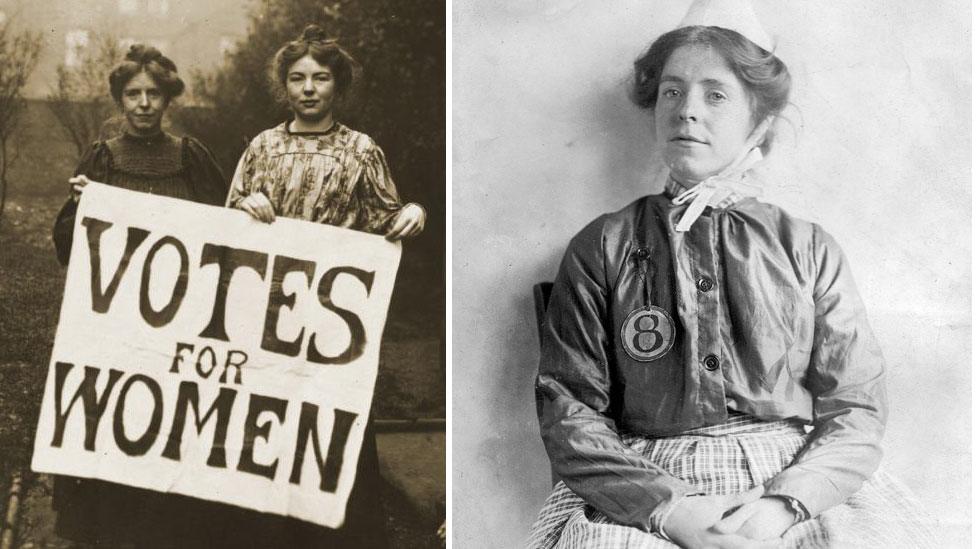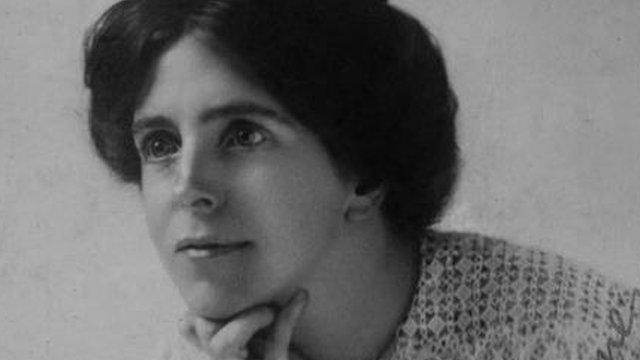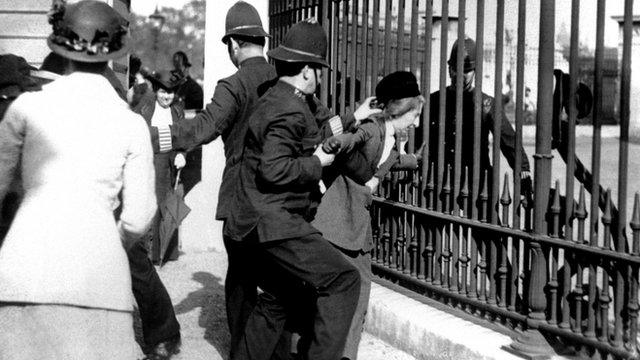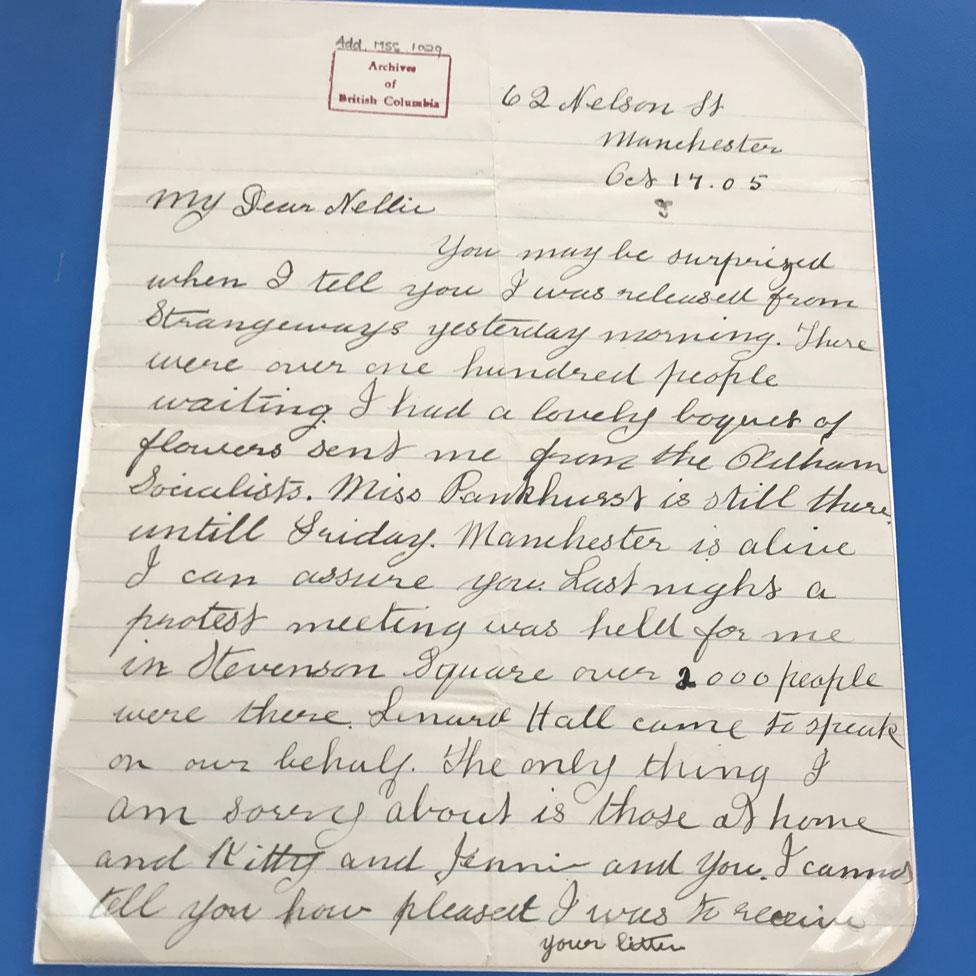Imprisoned suffragette letter discovered
- Published

Annie Kenney (left), with Christabel Pankhurst, was worried about her family's reaction to her jailing
A previously unknown letter from the first suffragette to be jailed in the campaign for the vote has been discovered by an Oxford historian.
Written the day after Annie Kenney was released from prison in Manchester in 1905, it is being claimed as the earliest known letter from a woman involved in the militant protests.
The letter, to her sister, was found in an archive in Canada.
"We don't have anything like this before," said Lyndsey Jenkins.
The historian was researching the Kenney family when she found the previously unrecognised letter in an archive in Canada - where Annie Kenney's sister had later emigrated.
'Risked everything'
"This is the first account by a woman about what it's like to go to prison for the vote," Ms Jenkins told the BBC.
"At this moment, they don't know what's going to happen, that they're going to be successful.
"She's risked everything. This could be the worst mistake of her life. She doesn't know there's going to be a positive reaction," said Ms Jenkins, a history lecturer at the University of Oxford.

Annie Kenney wrote to her sister after she was imprisoned in 1905
"Going to prison was an incredibly difficult step for these women. It's a really shocking thing to do, a very radical move. They don't know it's going to pay off."
Annie Kenney was a working-class woman from Oldham, who had worked in a cotton mill from the age of 10.
Her role in the suffragettes' struggle had often been downplayed, said Ms Jenkins, compared with the attention paid to better connected families such as the Pankhursts.
She played a prominent part in the suffragettes' campaign, effectively leading it between 1912 and 1914.
The suffragette was jailed several times and took part in hunger strikes. But, Ms Jenkins said, her contribution was "often underestimated and poorly understood".
'Votes for Women' placard
Annie Kenney's jailing was seen as a pivotal moment in the campaign for the vote - when the suffragettes moved towards more radical, direct protest.
With Christabel Pankhurst, they disrupted a government minister's public meeting, demanding answers on when women would have the right to vote.

Suffragettes began to take a more militant approach to protests
They were thrown out and Christabel Pankhurst accused of spitting at a policeman - and the two women were jailed.
"The impact was immediate and international," said Ms Jenkins, with the protest putting the suffragettes' campaign on to front pages around the world.
The protest and the jailing, now seen as the starting point of militant action, also saw the launch of the "Votes for Women" placards, described by Oxford University as "one of the most memorable political slogans of all time".
'You may be surprised...'
The letter written by Annie Kenney to her sister Nell was sent from the Pankhurst house in Nelson Street in Manchester.
She breaks the news of what has happened by saying: "You may be surprised when I tell you I was released from Strangeways yesterday morning."

The first page of Annie Kenney's letter from 1905
Annie Kenney says she knows another of her sisters is "awfully angry" but there were a hundred people to greet her when she left prison and another 2,000 supporters had gathered to hear speeches at a Manchester protest meeting.
"Manchester is alive I can assure you," she tells her sister.
But this was also a working-class family that had to think about practicalities as well as politics.
After describing her release from prison - getting a bouquet from the "Oldham Socialists" - she reassures her sister: "I am able to send money home every week."
The letter, on loan from the British Columbia Archives, will be put on display at Gallery Oldham from 29 September.